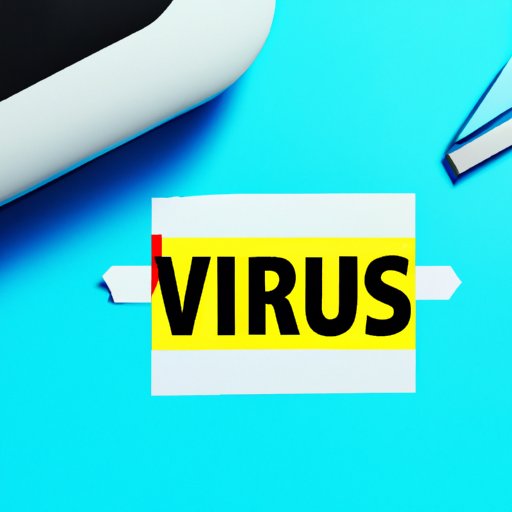
I. Introduction
Computer viruses can wreak havoc on your device, compromising personal information and damaging your system. It’s important to know how to get rid of viruses to keep your computer running smoothly and protect your sensitive data. This article is designed for beginners who are looking to improve their computer’s security and prevent future infections.
II. Anti-virus software
Anti-virus software is your first line of defense against computer viruses. It can detect, block, and remove malware from your computer. Some reliable anti-virus options include Norton, McAfee, and Avast. It’s important to remember that no single anti-virus software can protect you from every threat, so it’s a good idea to use a combination of anti-malware tools.
When you install anti-virus software, it runs constantly in the background, scanning for suspicious activity. Make sure to keep your anti-virus software updated to stay protected against the latest threats.
III. Scanning your computer
Running a full system scan with your anti-virus software is crucial for detecting and removing viruses on your computer. Here’s how to properly scan your computer:
- Open your anti-virus software and locate the scanning tool.
- Select “full system scan.”
- Click “scan” and wait for the program to complete the scan.
It’s important to be patient during the scan process, as it can take a while to complete. It’s also a good idea to schedule regular scans or set up automatic scans to keep your computer protected on a regular basis.
IV. Avoiding suspicious downloads
Viruses can be spread through infected files or software, which makes downloading suspicious material a risky activity. Here are some tips for avoiding suspicious downloads:
- Only download software from reputable sources.
- Double-check file extensions to ensure they are legitimate (for example, an executable file should end with “.exe”).
- Use anti-virus software to scan any files you’re unsure about.
If you accidentally download suspicious material, it’s important to disconnect your computer from the internet immediately and run a full system scan with your anti-virus software.
V. Keeping software updated
Updating your computer’s software can help prevent viruses by fixing security vulnerabilities. Here are some tips for keeping your software up to date:
- Enable automatic updates for your operating system and other software.
- Regularly check for new software releases and update as needed.
- Don’t neglect updates, as outdated software can leave your computer vulnerable to attacks.
VI. Safe browsing habits
Browsing the internet is one of the easiest ways to accidentally infect your computer with a virus. Here are some safe browsing tips:
- Avoid suspicious websites that offer free downloads or other too-good-to-be-true offers.
- Don’t click on pop-up ads or suspicious links.
- Use an ad-blocker to reduce the amount of ads you encounter while browsing.
- Disable auto-fill features in your browser to avoid accidentally providing sensitive information.
If you encounter a compromised website or accidentally click on a suspicious link, it’s important to disconnect from the internet immediately and run a full system scan with your anti-virus software.
VII. Backup and recovery
Backing up your data is crucial for maintaining long-term computer health. Here are some backup and recovery tips:
- Regularly backup your data to an external hard drive or cloud storage solution.
- Perform backups on a regular schedule (e.g. once a week).
- If you become infected with a virus, use system restore or reinstall software to recover your data.
VIII. Conclusion
In conclusion, getting rid of viruses can seem daunting at first, but following these tips can help keep you protected. Remember to install anti-virus software, scan your computer regularly, and practice safe browsing habits. Don’t forget to backup your data often, and seek professional help if needed. With these measures in place, you can greatly reduce your chances of falling victim to viruses on your computer.




